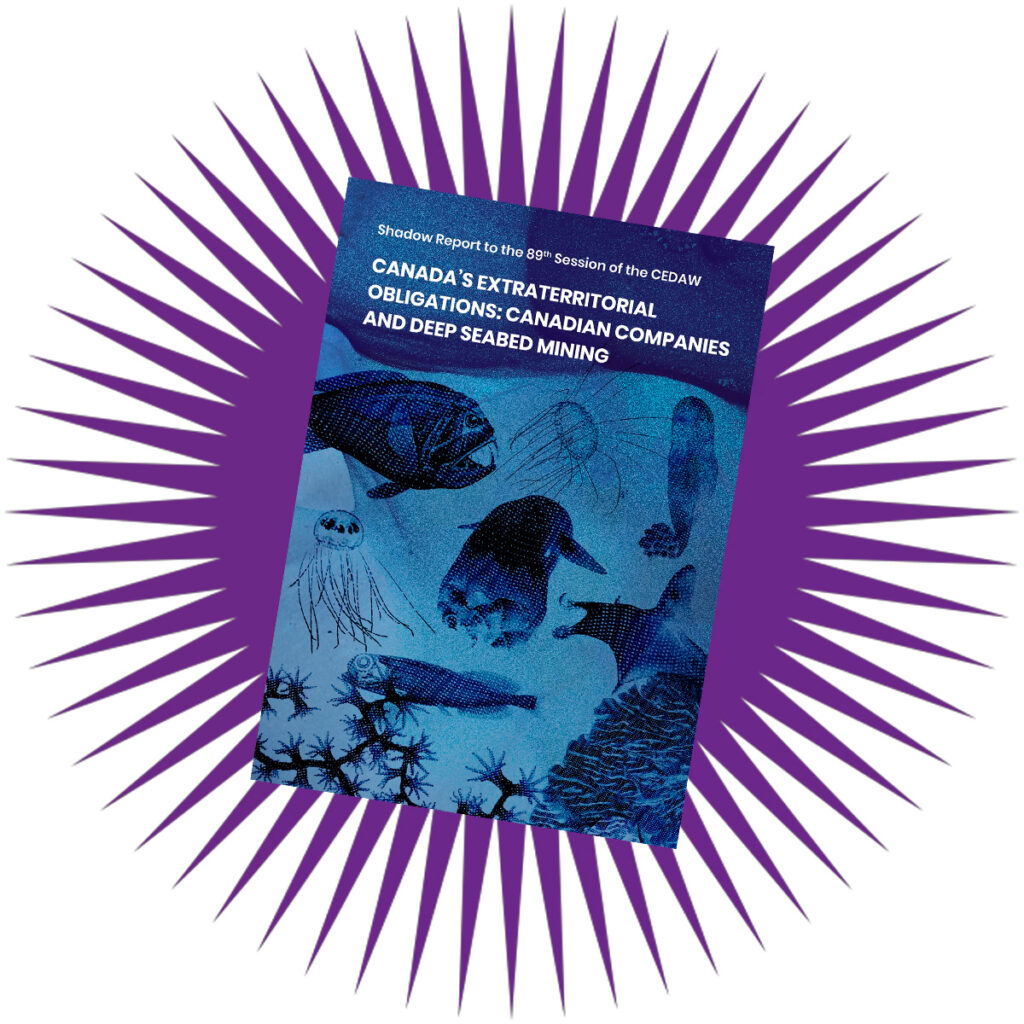Canada-registered venture capital start-up companies have been persistent and shady first movers in pushing to open the door to high-risk experimental seabed mining in the Pacific Ocean. Initially targeting Papua New Guinea’s Bismarck Sea, their focus has shifted to mining polymetallic nodules in the deep seabed of the Clarion Clipperton Zone, a vast area beyond national jurisdiction governed by the International Seabed Authority (ISA).
Although the ISA is tasked with regulating mining and protecting marine environments, critics argue that the body has been more focused on advancing mining interests than safeguarding the ocean in the past years. This has led to growing concerns over corporate capture of the regulatory body.
Mining the deep seabed, however, has become highly contentious. As ISA member states grapple with trying to complete negotiations on regulations and rules to govern mining activities in the deep seabed area, a steadily growing number of states are declaring moratorium positions to slow the rush to open up the deep seabed to this new, high risk, experimental extraction industry.
In July 2023, Canada became the 18th ISA member state to declare support for a moratorium on deep seabed mining. Despite its strongly articulated moratorium position, the country itself faces scrutiny due to the actions of Canada-registered companies, particularly The Metals Company Inc., which has been been fronting the profit-driven push to commence mining in the CCZ for several years and advancing disinformation to rationalize deep seabed mining.
DAWN and Pacific Network on Globalisation presented this Shadow Report ahead of Canada’s review at the 89th Session of Committee on the Elimination of Discrimination against Women (CEDAW), highlighting Canada’s extraterritorial obligations under international human rights law and emphasising the need for accountability in ensuring that companies operating beyond Canada’s borders do not cause environmental harm or violate the rights of affected communities.
Following our appeal, the Committee issued critical recommendations to Canada.
The Committee acknowledged Canada’s announced moratorium on DSM in both national and international waters, but expressed significant concerns about the insufficient awareness of the landmark opinion by the Tribunal on the Law of the Sea, brought by Tuvalu and eight other Caribbean and Pacific Island states, which emphasizes that all States are legally bound to protect the marine environment from the existential threats of climate change, as well as about environmental degradation, economic disruption.
Furthermore, it raises concerns about the environmental, economic, and social consequences of deep seabed mining carried out by Canadian companies that can disproportionately affect women and girls in local communities.
Given that, the Committee recommends that the State party:
- Assess the risks of DSM on women’s food security and livelihoods.
- Ensure DSM aligns with Sustainable Development Goal 14 on marine conservation.
- Hold Canadian-registered DSM companies accountable for environmental damage that threatens marine life, which inevitably affects the lives and livelihoods of women in the Pacific region and violates their human rights under the Convention.
We welcome and commend the Committee for their recommendations. However, we strongly believe that no DSM activities can truly align with the principles of SDG 14 or uphold the rights of women and local communities, given the irreversible harm they will cause to marine ecosystems and livelihoods.
DAWN continues to highlight these pressing issues in our Shadow Report, advocating for justice and accountability for women globally.
Check out this video with parts of Aysha Khan’s powerful statement on behalf of DAWN and The Pacific Network on Globalisation at #CEDAW89.

Download now our Shadow Report “Canada´s Extraterritorial Obligations: Canadian Companies and Deep Seabed Mining“
